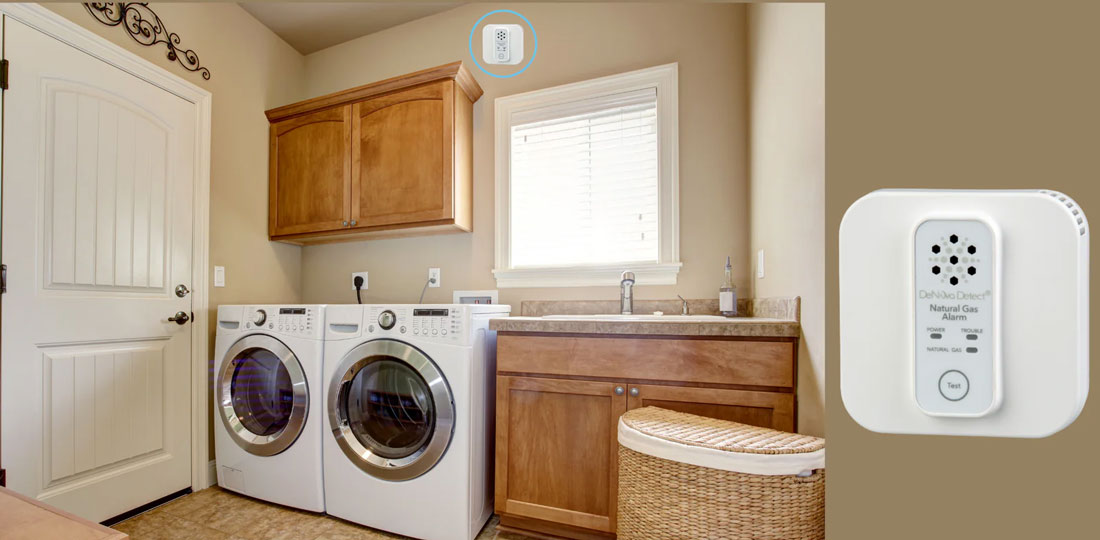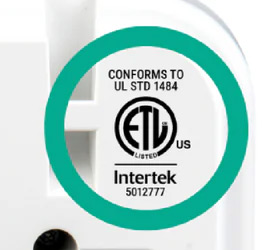
Natural Gas Detectors
If you have natural gas service at your home or business, consider purchasing a natural gas detector.
These devices provide an additional level of safety and peace of mind by helping to detect gas leaks early, preventing potentially dangerous situations.
If you believe there may be a gas leak:
First things first: If you smell the distinctive "rotten-egg" smell that comes from a chemical utilities like Central Hudson add to natural gas, or have any other reason to believe natural gas may be leaking, don't try to investigate or wait for your gas detector to sound: exit immediately and call 911.
Immediately means ASAP. Don’t wait for the detector to sound; light or use a match; turn lights on or off or use a flashlight, cell phone or telephone; turn on any other appliance or electric/electronic device; flush or run water; or open automatic garage doors.After you're safely outside the premises, call 911. Don't re-enter until told to do so by the authorities.
Selecting a natural gas detector
There are a variety of natural gas detector types. Some are battery-powered, some plug-in. Some are combined with carbon monoxide detection, some are natural-gas only.
Central Hudson recommends selecting a unit with the following:
- Underwriter Laboratory Standard 1484 for Residential Gas Detectors certification, in compliance with the National Fire Protection Safety Standards
- A detection level ≤ 10% of the lower explosive level for natural gas
- Battery-powered with a lifetime battery included (10+ years)

Look for this certification on a device before purcchasing it to ensure your gas detector meets the highest standards for sensitivity without excessive false alarms.
Installing a gas detector
Gas detectors should be installed in any room with natural gas appliance, no more than 12 inches from the ceiling, and at least 3 feet but no more than 10 feet away from any natural gas appliance.
The reason battery-powered units are recommended is because they allow for installation near the ceiling, well above where electrical outlets are usually located, and where it is possible to detect gas more quickly because natural gas rises.
Maintenance
- Regular Checks: Test detectors regularly to ensure they are working.
- Battery Replacement: Replace batteries as needed, or choose detectors with long-life batteries. (We suggest the latter.) Read the manual for your device closely to understand what signs the device will give when the battery is nearing the end of its life, such as a blinking light or an audible sound.
Further info
Read more about natural gas safety topics on our main natural gas safety page here.


